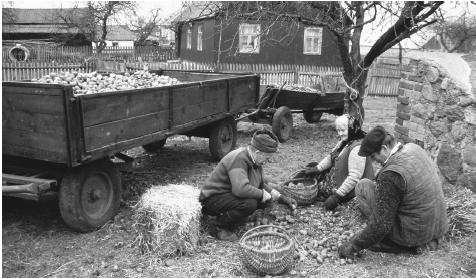The Ballad of Barnabas Pierkiel by Magdalena Zyzak
Henry Holt
Pp. 269
The narrator of this tale is our guide to the tiny town of Odolechka
“located so far from the sea and everything else that nearly no one had known
it existed, that is, until everyone knew at once.” In a cross between Borat and
Gogol, she mocks the town and all the inhabitants with a gentle satire that
points out both their limitations and pomposity. The parishioners and villagers
hate each other and are mainly concerned with eating sausages and salted
herrings. Our eponymous hero is seventeen and lazy; obsessed with Roosha, the
gypsy woman, and his own appearance.
Odolechka does not have much to recommend it. Indeed, when a German spy
(with the wonderfully unsubtle name of Boguswav) arrives by parachute and
quizzes the mayor and the police chief about their town’s assets, they proudly
show him the highlights: an abandoned barracks; haylofts; straw stacks; the
windmill; the abandoned string factory; “the scarecrow in the corn field by the
wheat field by the edge of town”; “our split oak tree, where Kashak crashed his
bicycle” the scorched bootlegging barn; hectares and hectares of cabbage
fields; some picket fences; and a well with four bricks missing.
In the true style of a picaresque novel, the town is populated by
simultaneously dull and colourful characters, including the police chief who is
so fat he can barely squeeze between the church pews, and the mayor who is not
much thinner. There is an entrepreneur with a motor vehicle (the only one in
the village) a doctor and his phlegmatic wife, and Kumashka, the drunken
priest, concerned with minor points of scripture.
Much of the humour comes from the fact that the author claims this is a
poor translation, while using specific expressions and complex vocabulary,
which has the reader rushing to a dictionary. For example, at one point in
church, Barnabas was “leaning on a splintery pilaster in the narthex” and when
there is nothing to counter the religious fervour of Kumashka, “The
speechlessness of the laity was so entire that borborygmus here and there was
heard.” Throughout the narrative, she deliberately deconstructs and draws
attention to the artifice of the novel, and frequently loses track of the main
narrative, trailing off after other non-entities, only to “return to our hero,
whose perspective the negligent author keeps abandoning.”
The quixotic folk tale elements cease abruptly, and a realistic WWII
conflict ensues which none predicted. Zyzak’s tale is a blow to complacency.
The fictional, bumbling, rural town of Odolechka and inhabitants are mocked,
but the town is now destroyed by war. As such it represents a “touchstone for a
hundred towns” near the Polish/ German border. We are rocked by sadness for a
traditional town we never knew, but also remembrances of real residences that
were similarly obliterated. By weaving a tale of froth and humour before
ripping it apart with brutal force, Zyzak teaches us a lesson we cannot and
should not ignore.


No comments:
Post a Comment